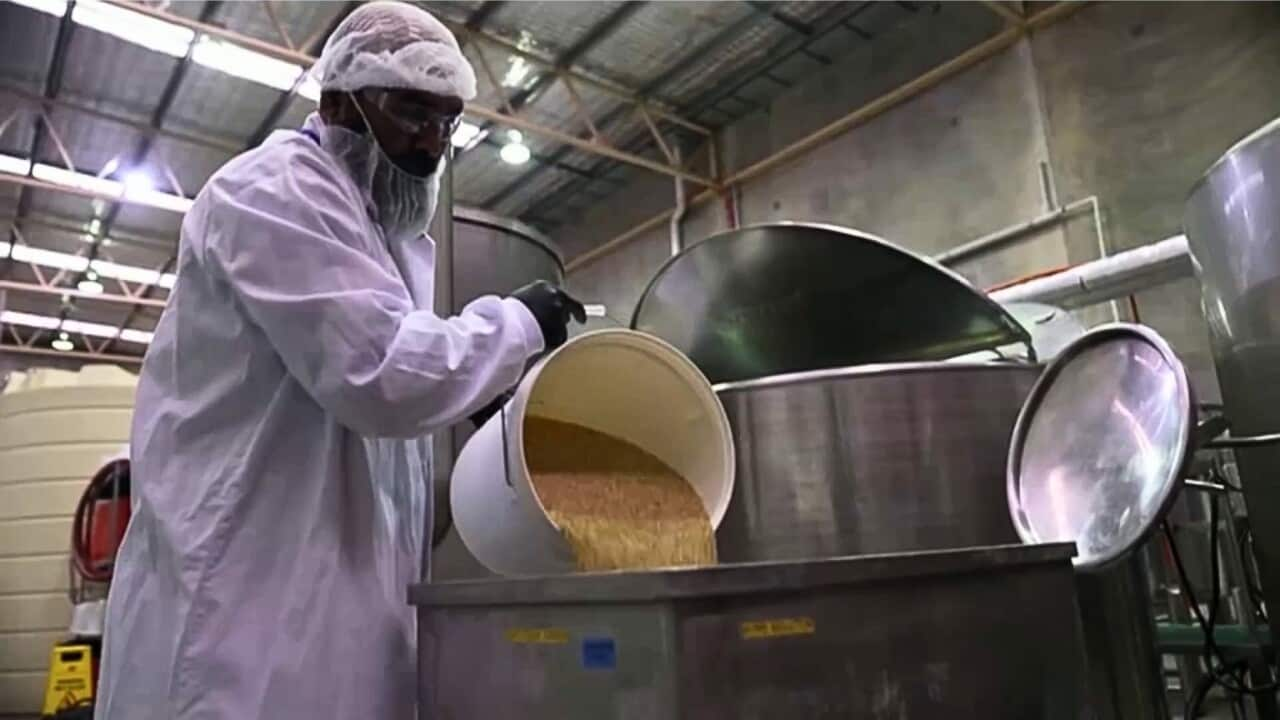TRANSCRIPT
Ask any nutrition expert, and they will tell you that protein is an important part of a healthy diet.
Our bodies use protein to repair muscles and bones, and for energy.
And what are the best sources?
For food scientists at Australian-based company Wide Open Agriculture, it's something called lupins.
Ben Cole is the company's founder.
“Lupins are sort of the unsung hero or the unrecognised hero of a new source of plant protein that can rival soy, pea and fava, which are the three big incumbents.”
Lupins are legumes belonging to the pea family.
Western Australia's Agriculture Minister, Jackie Garvis, says traditionally lupins have been a significant part of the state's farming landscape.
“West Australian farmers, particularly our grain growers, we basically feed the world with regard to grain, wheat, oats, barley, canola. Lupins are a really important break crop for farmers, so they might grow it every two or three years because it fixes nitrogen to the soil.... In the past they've been used for stock feed, so they haven't actually had a huge commercial value. So whilst they were really important for our farming systems, actually been to extract that protein and turn it into a plant based protein has huge opportunities for Western Australia.”
That's what companies like WOA have been hoping to improve on.
Ben Cole says they've been developing methods for extracting the protein and making lupin beans more palatable for various plant-based meat alternatives and dairy substitutes.
He says lupin is a great source of plant protein for those who follow a vegetarian diet.
“Why now is the time for lupin is really the technology has arisen out of a 30 year research project that really identified the ability to unfold the lupin protein and make it more versatile for a whole range of food products.”
But it's not just about alternative food sources.
Environmental groups have questioned the sustainability of soy farming, which has been closely linked to deforestation and monoculture, an agricultural practice that focuses on a single crop at a time.
Hayder al-Ali is a senior food scientist at Wide Open Agriculture.
“Food manufacturing companies and scientists around the world, I think, are in a race looking for new alternatives because due to the already updated information about climate change; it is happening, it is a real thing. One of these possible alternatives can be lupin as a solution for this problem.”
Ben Cole thinks that consumers will increasingly find the qualities of lupin appealing.
“Soy is the behemoth. It is the one that consumers, if they look on the back of a pack, they'll be finding soy in most plant based materials. But consumers are starting to look behind that label and ask questions around how is it produced: very chemically intensive systems that uses a lot of water.”
Jackie Garvis says the Western Australian government believes that farmers will also see the potential to do more with lupins.
“WA certainly has a potential to supply a lot of lupins to the world. We grow 85% of the lupins in the world. Whether we can replace soy, I don't know. I guess the advantage farmers have in Western Australia with dry land farmers; these are unirrigated crops and they're naturally good for our soil for that nitrogen fixing properties. We know that we are competing with soy, but this is a different market, I think. I think it's that market for people who are looking for that environmentally sustainable product.”













